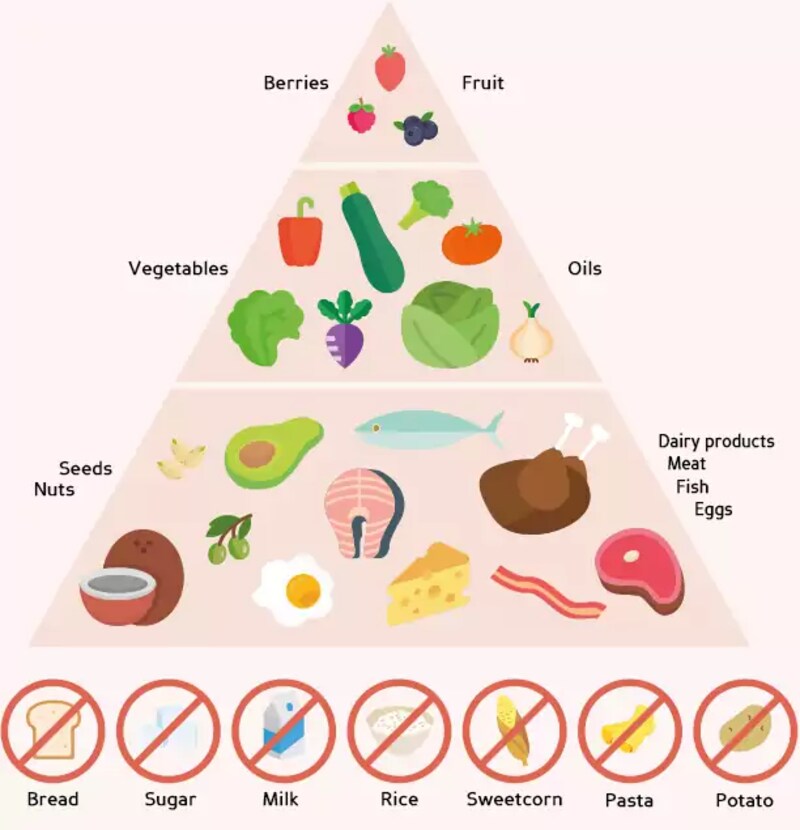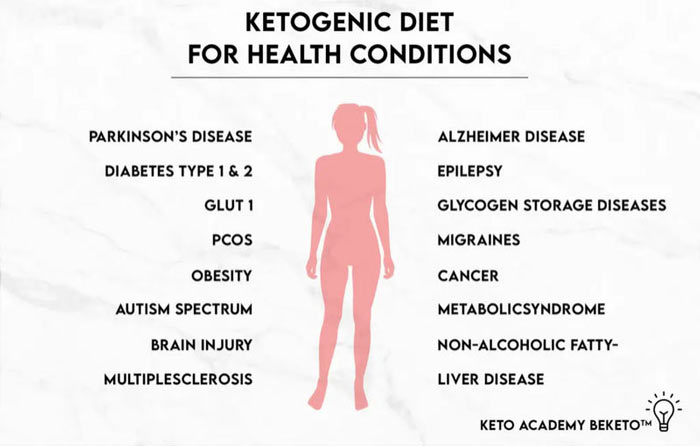The Fundamentals of the Keto Diet
Nov 30, 2023 By Madison Evans
Widely recognized as the keto diet, the ketogenic diet is a low-carbohydrate and high-fat dietary regimen. It has garnered popularity for its potential health benefits. Comprehending this nutritional approach's fundamentals empowers you to make informed decisions about your nutrition and well-being. The fundamental design of the keto diet aims to trigger a metabolic state called ketosis, wherein the body transitions from primarily using glucose as an energy source to burning fat.

How the Keto Diet Works?
The keto diet induces a fundamental shift in the body's metabolic processes primarily by manipulating macronutrients like carbohydrates, fats, and proteins. Understanding this mechanics of operation illuminates the reasons behind its recognition for potential health benefits.
1. Inducing Ketosis
An induction of a metabolic state, ketosis, lies at the core of the keto diet. This shift in energy production strategy occurs when the body, is deprived of its usual carbohydrate fuel. It no longer converts carbohydrates into glucose, the primary energy source that serves us normally. Inadequate carbohydrate presence prompts the liver to metabolize fats into ketones. This occurs in the absence of sufficient carbs.
2. Drastic Reduction in Carbohydrates
Individuals following the keto diet significantly reduce their carbohydrate intake to trigger ketosis. They typically limit their carb consumption to around 20–50 grams per day. This starkly departs from the Western diet, which heavily relies on carbohydrates. This restriction compels the body to seek alternative energy sources and thus mobilizes as well as utilizes stored fats.
3. Increased Fat Consumption
Advocates of the keto diet simultaneously push for a significant increase in dietary fat intake. They recommend replacing carbohydrates with fats to offer their bodies an alternative energy reservoir. The keto diet incorporates sources such as avocados, olive oil, and high-quality healthy fats, alongside nuts, seeds, and fatty fish. Not only do these fats function as a primary source of energy, but they also contribute to satiety. They assist in creating feelings of fullness and satisfaction after meals.

4. Moderate Protein Intake
Various bodily functions require proteins, yet the keto diet underscores a moderate protein intake. Excessive protein consumption potentially disrupts ketosis because the body can convert surplus protein into glucose via gluconeogenesis. Therefore, ensuring a balance that aligns with individual needs remains critical for achieving success on the keto diet.
5. Adaptation and Maintenance
Adopting the keto diet's initial stages can pose challenges, often coinciding with a phase termed the "keto flu." This period reflects the body's adjustment to metabolic shift. After adaptation occurs, efficient utilization of ketones for energy characterizes it. Furthermore, numerous individuals affirm heightened energy levels and enhanced focus while experiencing gradual weight loss.
6. Continuous Monitoring and Individual Variations
Recognizing the non-universal nature of the keto diet is imperative; indeed, individuals may experience variations in their speed of entering ketosis. Furthermore, ideal macronutrient ratios could differ significantly. Regular monitoring through urine or blood tests, to check ketone levels, facilitates individuals' evaluation of their metabolic state and enables necessary adjustments for maintaining ketosis.
Benefits of the Keto Diet
Weight Loss and Fat Burning
The unique metabolic process of the keto diet is rooted in its impact on weight loss. When carbohydrate intake undergoes severe restriction, it induces the body into a state of ketosis and triggers a reliance on stored fat for fuel.
Subsequently, in this metabolic phase where fats transform into ketones by liver action, they become our paramount energy source. Consequently, the body's utilization of stored fat intensifies into a more efficient and targeted method for burning it. This transformation renders it an effective strategy for individuals with ambitions to eliminate surplus weight.
Steady Energy Levels
The Keto diet, in contrast to high-carb diets that frequently result in energy spikes and subsequent crashes, consistently provides sustained energy. In ketosis, the body accesses a stable energy source from fat breakdown.
This reliable level of energy not only averts fluctuating peaks and valleys but also enhances daily focus and endurance. Often, individuals adhering to the keto diet report an energy experience that is both balanced and reliable; this can particularly benefit daily productivity, enhancing overall well-being in the process.
Improved Mental Clarity
The keto diet has the potential to impact cognitive function is an intriguing aspect. Adherents often report experiencing enhanced mental clarity and focus. This dietary approach may support cognitive function, potentially due to the stability of energy levels associated with ketosis.

The highly energy-demanding brain benefits from the continuous and efficient supply of ketones, leading to not only stability in energy levels but also enhanced concentration, sharper thinking, and heightened mental acuity for some individuals. It is worth noting that ongoing research illuminates potential cognitive benefits by exploring the relationship between a keto diet and neurological health.
Challenges and Considerations
- Keto Flu
The metabolic shift may induce symptoms in certain individuals, referred to as the "keto flu", these include fatigue, headaches, and irritability. Alleviating these conditions is possible by maintaining hydration levels and guaranteeing an adequate intake of electrolytes.
- Sustainability
Many have seen positive results from the keto diet. However, its stringent guidelines may present challenges to sustained adherence. It is essential to discover a sustainable balance that caters to individual lifestyles.
Conclusion
The keto diet, with its unique approach to nutrition, emphasizing low-carb and high-fat intake for health and weight management, proffers an intriguing pathway. It underscores the significance of macronutrient composition.
Understanding the basics of ketosis and discerning each food group's role is key. It empowers individuals not only in making informed choices about their dietary habits but also in harnessing potential benefits offered by this specific regimen. If you want to pursue weight loss, enhanced energy levels, or cognitive enhancement, the realm of food and health may hold a promising pathway; The Keto Diet.







